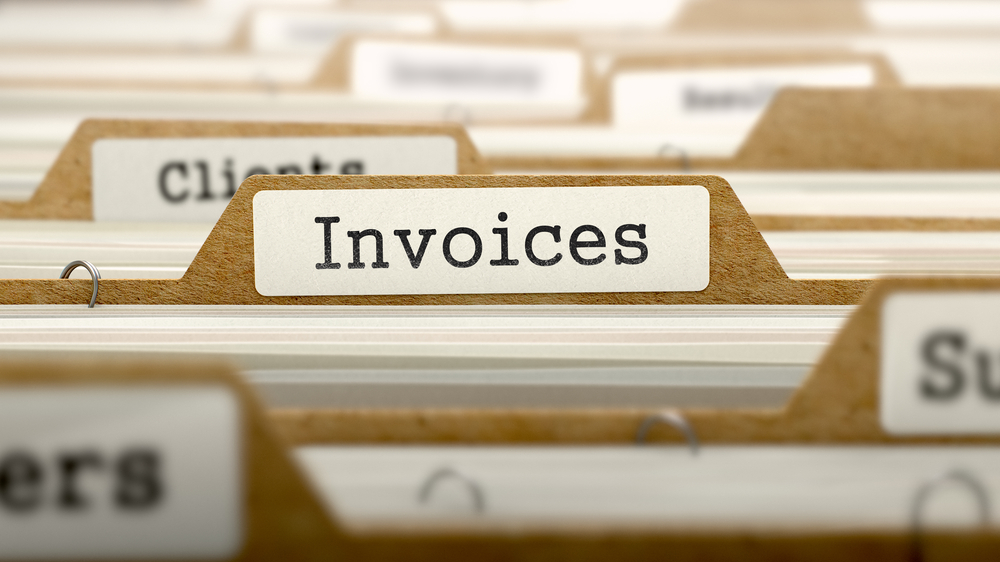7 Reasons to Get Business Funding in Q4
The fourth quarter of the year is a very busy time for small businesses, especially for those in the retail, hospitality, and services industries....

Obtaining clients and customers for your business can be a source of immense happiness and satisfaction. It indicates growth and validates the hard work and effort you've put into your business. Of course, clients and customers translate into more sales revenues for your company, so long as they pay their invoices.
It is common for some clients and customers to make their payments late or forget to make them altogether. Unpaid invoices can have serious consequences for your business. They can disrupt cash flow, leading to financial strain and impacting your ability to pay bills and employees on time. So, what can you do? Read this Huddle Business Capital blog article for tips on how to handle unpaid invoices.
As mentioned above, unpaid invoices can result in cash-flow shortfalls and affect your ability to meet operational expenses, pay bills, purchase inventory and supplies, and invest in growth opportunities. These issues will worsen if the number of unpaid invoices and the amount of money owed to your business increase.
Next, unpaid invoices that cause cash-flow problems can make paying your suppliers and vendors difficult. If you can't pay your company's bills, your account might be submitted to a collection agency, hurting your credit rating and relationships with suppliers and vendors. In a worst-case scenario, suppliers and vendors may be reluctant to extend credit or provide essential materials if they are not being paid promptly. This can lead to supply chain disruptions and affect your business's productivity.
Internally, unpaid invoices can also create tension among your employees, especially if salaries or bonuses are delayed due to cash flow issues caused by outstanding payments. This can impact morale and employee retention rates and create operational challenges for your business.
An efficient invoicing system is crucial for maintaining healthy cash flow and managing finances effectively. There are many affordable and easy-to-use invoicing software options, some of which are included in business accounting software packages. Invoicing software lets you generate professional-looking invoices, track payments, and simplify financial record-keeping. By leveraging these tools, you can save time, reduce errors, and improve overall financial management efficiency.
Look for invoicing software with a feature that sends automated reminders for overdue payments to help streamline the payment process and ensure the timely collection of outstanding balances.
Setting clear payment terms and effective communication with clients and customers are essential best practices to ensure timely payments and maintain positive relationships. Establishing terms upfront, such as payment due dates and accepted payment methods, can reduce misunderstandings and avoid payment delays.
Effective communication with clients and customers throughout the invoicing process can help address issues promptly and ensure that invoices are paid on time, ultimately improving cash flow and helping your business maintain financial stability.
You want your invoices paid on time and in full, but this doesn't always happen. If you have clients or customers with overdue invoices, the last thing you want is to contact them demanding payment in a tone that aggravates them. Always assume that your clients or customers simply forgot to make their payments, which is often the case in business. Clients and customers may have valid reasons for delayed payments, and open communication can help resolve issues amicably.
You can start by sending a polite and tactful email to your client or customer, reminding them their payment is due. Include the basic information, such as the invoice, payment amount, and payment due date, in your email. Since the ultimate goal of your email is to receive payment for products or services rendered, include payment options for your clients or customers.
If your email communication to your client or customer is unsuccessful, the next step is to call and remind them of their unpaid invoice. This can be challenging because you didn't start a business to handle debt collection calls, and it can be difficult to bring up late payments with clients and customers.
When you call a client or customer with a past-due invoice, be assertive, maintain professionalism, and offer a solution. This can help you build rapport and diffuse a potentially tense conversation with your client or customer.
Hopefully, your email and/or telephone call to your client or customer will result in a successful outcome, as they will pay their outstanding invoice. If not, there are additional steps to consider, but think strongly before moving forward with them, as they can jeopardize your business relationship. First, you can charge a late fee as outlined in the payment terms section of your invoice. Late fees are typically a percentage of the amount owed.
If all else fails, you might want to hire a debt collection agency to recover the overdue funds. This is an added expense for your business and can hurt your relationship with your client or customer.
If your business is experiencing a cash crunch due to unpaid invoices, consider a flexible financing solution called invoice factoring. Here's how it works: A funding company buys your credit-approved unpaid invoices and ongoing invoices for the customers you are interested in factoring. Up to the total invoice amount can be advanced.
With invoice factoring, you can access immediate funds to cover operating expenses, invest in growth opportunities, or maintain a healthy cash flow. This option provides an alternative to traditional business loans and can be beneficial if you seek quick and reliable funding
This Huddle Business Capital blog article is purely educational and contains general information and opinions; it is not intended to provide advice or recommendations of any kind.

The fourth quarter of the year is a very busy time for small businesses, especially for those in the retail, hospitality, and services industries....

Your small business generates sales revenue each time a customer purchases your products or services. And the more you sell, the greater your...

Once your small business gets off the ground and begins to grow, there will be times when additional funding is needed to sustain growth. However,...